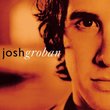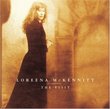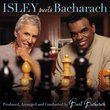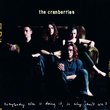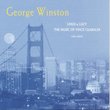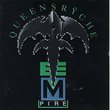| All Artists: William Walton, Andre Previn, Royal Philharmonic Orchestra, Nigel Kennedy Title: William Walton: Violin Concerto / Viola Concerto - Nigel Kennedy / Andre Previn / Royal Philharmonic Orchestra Members Wishing: 1 Total Copies: 0 Label: EMI Release Date: 10/25/1990 Album Type: Import Genre: Classical Styles: Forms & Genres, Concertos, Historical Periods, Modern, 20th, & 21st Century, Instruments, Strings Number of Discs: 1 SwapaCD Credits: 1 UPC: 077774962827 |
Search - William Walton, Andre Previn, Royal Philharmonic Orchestra :: William Walton: Violin Concerto / Viola Concerto - Nigel Kennedy / Andre Previn / Royal Philharmonic Orchestra
CD DetailsSimilarly Requested CDs
|
CD ReviewsCONFIDENCE DAVID BRYSON | Glossop Derbyshire England | 03/25/2005 (5 out of 5 stars) "In case you were wondering who this Barry Griffiths might be, he is the orchestral leader, or was at the time of making these recordings. Distinguished as his contribution doubtless was, it's easier to identify and comment on those of the soloist and conductor, and I would call both of those absolutely first-rate. Nigel Kennedy went through various changes of personal image, but for all that he stayed pretty consistent and true to himself as a classical interpreter. He is a virtuoso with an easy command and assurance on his own usual instrument the violin, and one of the main things that seems to me to commend this disc in particular is the opportunity it provides to hear the violin and viola concertos given by the same solo player as well as by the same conductor and orchestra.
Kennedy adapts to the viola as to the instrument born, so far as I can tell. I first heard this outstanding modern masterpiece under the best imaginable circumstances. Primrose was himself the soloist, and the performance was given in the old St Andrew's Halls in Glasgow (now alas no more), which boasted acoustics that were probably as good as any in Europe. From this experience I learned how the balance between the notoriously shy viola and a full concert orchestra ought to sound, although the scoring I was listening to at that time must have been the original version before Walton decided to revise in in the 1960's. It should be no surprise to any of us that a virtuoso orchestrator of the calibre of Walton knows what he is doing. There is no need to dampen down the orchestral forte, because Walton has judged that matter for us, nor is there any need to suppose that when the viola seems to struggle to make its voice heard that is not exactly how it is meant to sound in the context. It reminds me of some sequences in Brahms's violin concerto - there are many instrumental tigers who can make these sound effortless, which is an achievement without an objective as they are meant to sound effortful. The violin concerto is probably not quite the equal of its great companion, but that would have been asking a lot. It is a more extrovert composition, not of the stature of Elgar's certainly but still to my mind one of the finest 20th century examples of its kind, more ambitious than Delius's and with greater consistency and purity of style than that by Sibelius himself. You can hear the original dedicatee Heifetz in a fine set of all the Walton concertos (together with Previn's famous account of the first symphony) which has Previn again conducting in the viola concerto with Yuri Bashmet as solo. It seems to me that Kennedy has nothing to fear from comparison with Heifetz, and in the nature of the case he is better recorded. Heifetz is slightly quicker but the real difference is one of temperamant - Kennedy is more relaxed, a treatment that the work takes to very well. In the viola concerto I prefer Kennedy again. The effect from him is richer, and I suspect that the recording has more than a little to do with that. In my own view Previn was probably the successor of Boult as the leading conductor of English music in his generation, a very welcome state of affairs in breaking away from insularity in this respect. His particular affinity with Walton was well established from the B flat minor symphony, and he confirms that impression with these sympathetic readings of less forceful music. There is a very satisfying sense of coherence and consistency in this set, and I recommend it without reservation." |

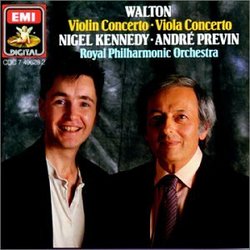
 Track Listings (6) - Disc #1
Track Listings (6) - Disc #1